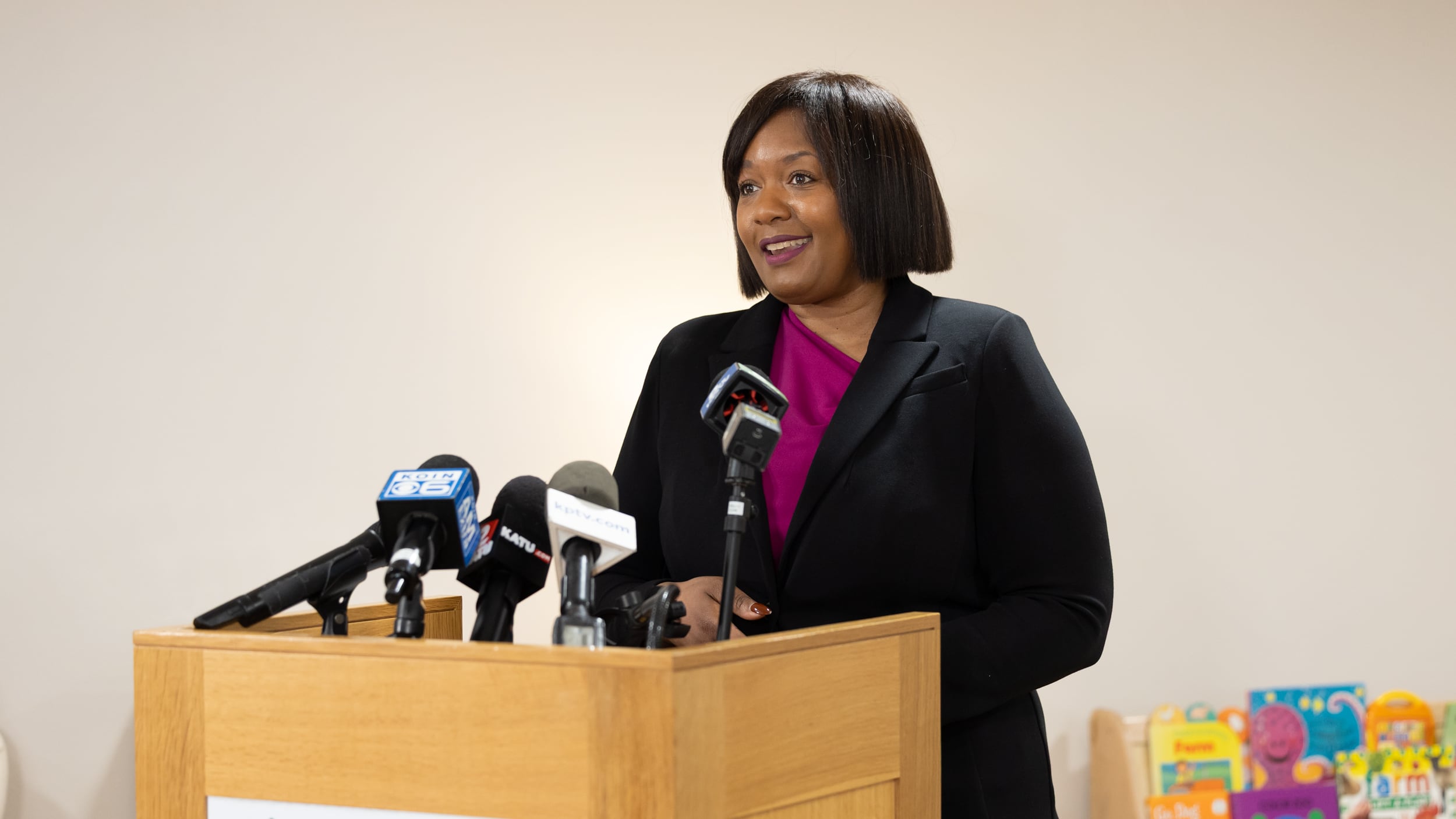A newly released public record from the Oregon Secretary of State’s Office indicates Multnomah County’s former Preschool for All director turned students away from participating in a state-funded program at the preschool she owned, even amid chronic underenrollment.
Leslee Barnes, who resigned as the county’s preschool and early learning director on July 31, owns a preschool in North Portland called Village Childcare Enterprises LLC. That preschool was one of four cited as an example in a recent state investigation of Preschool Promise, a state-funded program providing subsidized child care to low-income families, as WW first reported. Between 2020–21 and 2022–23, Village Childcare collected $833,494 from the state to serve just nine children.
Now, working papers from that investigation reveal new details about Barnes’ school and its underenrollment. (Names are redacted in the document; however, this provider’s 2021–22 grant award data lines up exactly with that of Barnes’ school, as does its enrollment numbers.)
Data and survey information presented to a Preschool Promise low enrollment review committee even led its members to recommend Preschool Promise discontinue its partnership with Barnes’ school—which would have meant the end of its state funding.
Details in this report raise additional questions about Multnomah County’s due diligence before Barnes’ hiring. They also raise questions about why the Department of Early Learning and Care (then operating under the Oregon Department of Education as the Early Learning Division) continued Village Childcare’s contract for another year, ignoring the committee’s recommendation. (Between 2021–22 and 2022–23, Preschool Promise reduced Village Childcare’s seats by half, from 20 to 10.) DELC did not immediately responded to WW’s questions for this story.
When reached for comment on Monday, county spokeswoman Julie Sullivan-Springhetti said the county has no comment on the Secretary of State documents. “As a job candidate for the Preschool for All position, former Director Barnes went through a competitive process, including multiple interviews and reference checks,” she said.
The low-enrollment review committee, consisting of Preschool Promise analysts and staff, reviewed 15 programs during the 2021–22 school year.
“It was determined that grantees in the ’21–22 program year should meet an enrollment expectation that considered the continuing health crisis and resulting disruptions,” the committee’s report reads. “All programs that did not meet the expected minimum enrollment of this program year are less than 50% enrolled.”
In the report, there is some dispute over the length of time Barnes’ school underenrolled students in Preschool Promise. Village Childcare and Barnes have previously said they experienced chronic underenrollment during the pandemic, like many other providers. But Early Learning Multnomah, a state-contracted early learning hub meant to oversee Preschool Promise enrollment and eligibility, reported Barnes’ school had consistently underenrolled its Preschool Promise seats starting in the 2016–17 academic year—well before the pandemic.
Barnes has previously placed blame on ELM, and told WW that the hub was not helping her achieve higher enrollment numbers. She cited this as a reason she willingly adjusted her Preschool Promise seats from 33 to 20. But Kelly O’Lague, president and CEO of United Way of the Columbia-Willamette, which oversees ELM, has disputed this assessment, arguing the hub does not assign seats and that specific enrollment decisions are up to providers and families.
“Provider does not feel they have adequate support from the Hub to increase enrollment,” the report reads. “There is conflicting information about what support was offered. Provider says they were not offered signs and have had difficulty contacting Hub staff. Hub says provider has always been underenrolled. Provider states that when they managed their own enrollment, they were able to fill the 10 slots they held at the time.”
Early Learning Multnomah does not appear to be entirely faultless: It was the hub with the most “significantly underenrolled” grantees in the committee’s report, at five.
But it is also apparent that Barnes’ school failed to enroll students even as other schools in the surrounding area filled most of their seats. “It is worth noting that there are two [redacted] PSP programs that are less than a 10-minute drive from this program,” the report reads. The closest one, three minutes by car, filled 30 of its 36 slots.
The report indicates there may have been some efforts to help boost enrollment at Village Childcare, but that the provider did not appear responsive to them. Village Childcare did not answer a question from the committee asking if it had met the needs of families interested in Preschool Promise.
But Preschool Promise staff noted the school may have turned children away.
“Families who were referred in April were not enrolled by the provider,” the committee report reads. “The program has also refused to enroll a child who was attending [redacted] in the mornings and needed to arrive midday. They stated they do not allow arrivals past 9:30 except occasional appointments.”
In a section titled “additional information provided by grantee and/or hub,” a commenter notes that the Early Learning Division is aware of “a couple” of incidents in which the grantee refused to serve families matched with it, in spite of a more than 75% vacancy.
Ultimately, the committee recommended ending the partnership with Village Childcare, noting its concerns whether it was a necessary program in the community. The committee flagged that median income in the region was well above 200% of the federal poverty level (the qualifying income limit for Preschool Promise) and that eligible families may have chosen to enroll at other schools. It is not immediately clear why that recommendation was not followed.
“This provider did not provide a narrative for how they met the needs of families in their community,” the committee’s rationale reads. “There have been concerns regarding the provider’s willingness to serve families that were matched with the program.”

